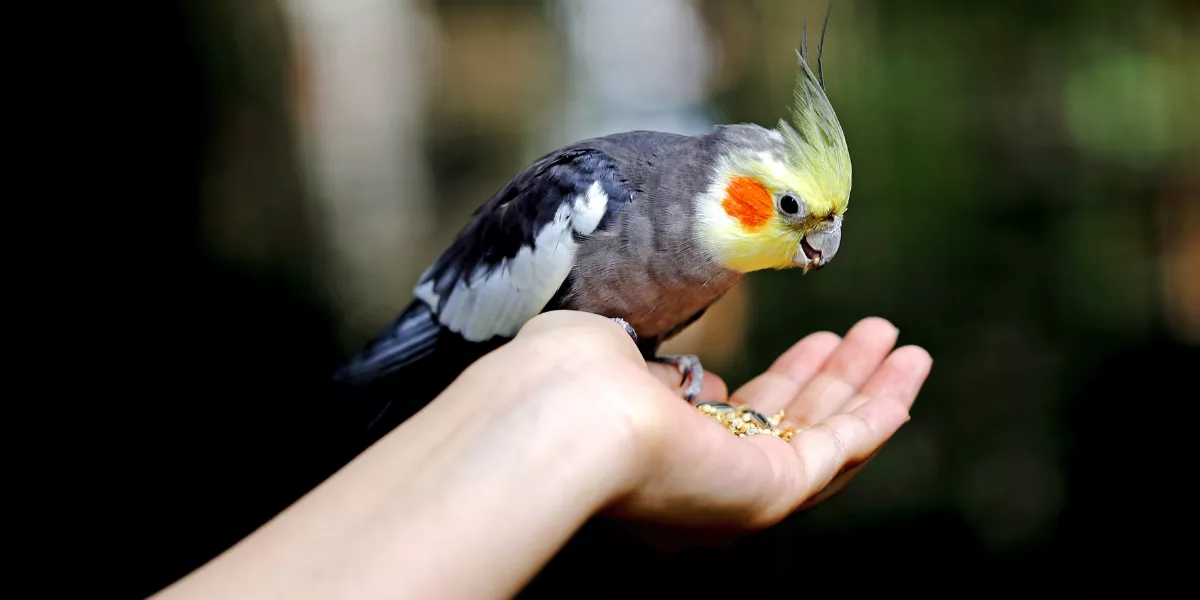
Different species of pet birds need essential vitamins like A, D, and E for vision, bone health, and immunity. Minerals such as calcium, phosphorus, zinc, and iron are vital for bone development, immune health, and metabolism. Proteins are crucial for tissues, muscles, feathers, and hormones, with lean meats, eggs, and nuts being beneficial sources. Healthy fats from seeds and nuts support energy, brain function, and vitamin absorption. Balancing these nutrients is key for a nutritious diet that ensures your feathered friend's well-being and longevity.
Essential Vitamins for Pet Birds
When caring for your pet bird, it's crucial to ensure they receive the essential vitamins necessary for their health and well-being. Vitamins play a vital role in maintaining your bird's overall health, supporting various bodily functions, and preventing deficiencies.
Vitamin A is essential for maintaining good vision, a healthy immune system, and proper growth and development. Make sure your bird's diet includes foods rich in vitamin A, such as carrots, sweet potatoes, and dark leafy greens.
Vitamin D is crucial for calcium absorption, bone health, and overall well-being. Birds can produce vitamin D through exposure to sunlight, but supplementing their diet with vitamin D-fortified foods is also recommended.
Vitamin E acts as an antioxidant, protecting cells from damage and supporting the immune system. Including nuts, seeds, and leafy greens in your bird's diet can help ensure they receive an adequate amount of vitamin E.
Incorporating a variety of vitamin-rich foods into your pet bird's diet is essential for promoting their health and longevity. Regularly consulting with a veterinarian can help ensure your bird's nutritional needs are being met.
Key Minerals for Avian Health
Ensuring your pet bird's optimal health involves providing them with essential minerals crucial for their overall well-being. Calcium is a key mineral necessary for strong bones, eggshell formation, and proper muscle function in birds. Without an adequate calcium intake, birds can experience health issues like egg binding or brittle bones.
Phosphorus works hand in hand with calcium, promoting healthy bone development and aiding in energy metabolism. Zinc is vital for maintaining a healthy immune system, promoting feather health, and supporting proper wound healing in pet birds. Iron is essential for oxygen transport in the blood and overall metabolic function. However, it's important to note that too much iron can be harmful to birds.
Lastly, iodine is crucial for thyroid function and plays a significant role in regulating metabolism in avian species. Providing a balanced diet rich in these key minerals is essential for your pet bird's health and well-being.
Importance of Proteins in Bird Diets
Why are proteins crucial in your pet bird's diet for optimal health and well-being?
Proteins play a vital role in maintaining your bird's overall health and are essential for various bodily functions. They're the building blocks of tissues, muscles, feathers, and even hormones in your bird's body. A diet rich in high-quality proteins ensures proper growth, development, and maintenance of your feathered friend's body.
Proteins are especially important for birds during molting, breeding, and times of stress, as these periods require increased protein intake to support the body's demands. Without enough protein in their diet, birds may experience poor feather quality, decreased muscle mass, and overall weakness.
It's crucial to provide your pet bird with a balanced diet that includes sources of high-quality proteins such as lean meats, eggs, legumes, and nuts to meet their nutritional needs.
Understanding Fats in Avian Nutrition
To maintain your pet bird's health and well-being, understanding the role of fats in avian nutrition is crucial. Fats are a dense source of energy, providing more than double the energy of proteins and carbohydrates. They're essential for various bodily functions, including hormone production, insulation, and cell structure.
When selecting fats for your bird's diet, opt for healthy unsaturated fats like those found in seeds, nuts, and certain fruits like avocados. These fats help maintain healthy skin and feathers, support brain function, and aid in the absorption of fat-soluble vitamins like A, D, E, and K.
However, it's important to avoid feeding your bird excessive amounts of fatty foods, as this can lead to obesity and other health issues. Balancing fat intake with proteins and carbohydrates is key to ensuring your pet bird receives a well-rounded and nutritious diet. Remember, moderation is key when incorporating fats into your bird's nutrition plan.
Conclusion
Overall, ensuring that your pet bird receives the proper nutrition is essential for their health and well-being.
By providing a balanced diet rich in essential vitamins, minerals, proteins, and fats, you can help support their immune system, maintain their overall health, and promote longevity.
Remember to consult with a veterinarian or avian nutrition specialist to tailor their diet to their specific species and individual needs.
Your feathered friend will thank you for it!




